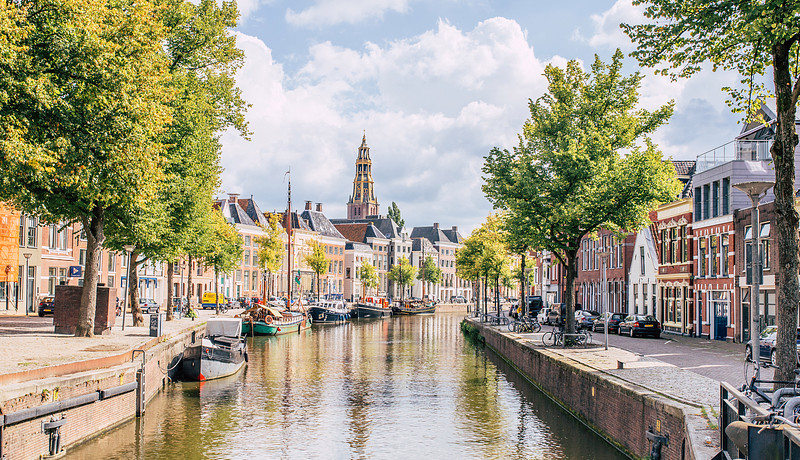Energy Governance

Energy Governance
- Level
- Language
- English
- Credits
- 30 ECTS
- Startmonths
- Start: September
- Locations
- Groningen
Curious about where our future energy will come from? How will energy markets change? How will this impact households and businesses? In line with international climate and energy goals, energy markets will undergo substantial changes until mid-century. Most energy will be supplied with renewable energy sources such as wind and solar energy, replacing fossil fuels. What does it mean for energy markets to be more dependent on the weather for energy supply? What can be done to keep energy supply stable and how to organize that? In other words, what energy governance do we need?
This minor is for students with a passion for the environment and a keen interest in the future of our energy supply. The minor enables collaboration among students with different backgrounds as the energy transition requires solutions from multiple disciplines, such as engineering, economics, law, communication and behaviour. With that, students will rethink energy market structures, the rules of the game and responsibilities, and thus be able to contribute to new insights on energy governance.
Please note that exchange students can only be nominated for a specific exchange programme if an agreement has been set up between the Hanze School offering the programme and your home university. Please contact your home university for more information.
Your role in this programme
Energy Governance will familiarize you with energy governance aspects. Governance is the process of making and enforcing decisions within an organization or society. In the energy market, these ‘rules of the game’ have been built around fossil fuel-based energy production and consumption. With an increasing share of renewable energy, with their different characteristics, these rules will change. Old energy markets have been largely separated: electricity, heat and transportation. New energy markets are more integrated with electricity also being used for heating and riding vehicles. This will change the shape of energy markets, with consumers also becoming energy producers, electric vehicles becoming virtual power plants and businesses being paid for not using energy.
You will be introduced into all these developments and challenged to rethink what this means for the ‘rules of the game’, the governance. You will be encouraged to take different ‘roles’ in the energy market and think about at actions to be taken by governments and private businesses while coping with market changes.
The programme will consist of four main courses during two periods:
- Introducing energy governance (period 1)
- Rethinking the market organization of future energy systems (period 1)
- Formulating energy strategies, based on new energy governance insights and applying these to a project (period 2)
- Project assignment (period 1 and 2)
Within these blocks you will be able to build a solid knowledge base, as well as apply this knowledge to concrete project assignments from Hanze’s research community. You will be able to make a difference!
In the second period you will work at ENTRANCE - Centre of Expertise Energy, where multidisciplinary research takes places on the latest energy solutions. It’s a lively hotspot for meeting innovative companies, system operators, municipalities, researchers, and professors. They will involve you in their questions and projects tapping into your gained insights on energy governance.
Projects
Examples of projects for you to work on are:
- Market Organisation of the Dutch Energy System (MODES) – focussing on the Netherlands energy system MODES will, as asked by the Netherlands government, rethink energy market structures for a 2050 society without greenhouse gas emissions, as well as required steps during the energy transition.
- Policies for Positive Energy Districts (Pol4PED) – With case studies in Groningen, Vienna, Zurich and Paris Pol4PED will analyse solutions that enable city districts to produce more energy than they consume. Technically these solutions exist, but do they make economic sense, and will household be willing to change their behaviour. Pol4PED will work on those questions.
- Emission Free Construction Sites – aims to reduce the emissions from construction sites and thereby reducing their climate environmental footprint. The main focus is on the regulation of generators that currently use fossil fuels. These generators will be replaced by hydrogen fuelled generators. Switching to hydrogen requires a legal framework that is yet to be designed.
In the video below, Professor Wytze van der Gaast tells more about the minor:

What will you achieve?
After completing this programme you will have gained insight into the public and private decision making processes related to the energy transition. The programme will provide you with the knowledge and skills for developing solutions for energy transition related issues.
With the minor you are qualified to work as an advisor to the public or private sector, be it energy companies, industrial plants, consumer organisations or local governments. Or you become an innovator working on energy-related projects and startups. Closer to home you could help initiatives in your local community.

This video, created by ExxonMobil gives you a general idea of the challenges and opportunities in today's energy markets. Are you fascinated? If so, this pogramme is perfect for you!
| This minor is a 30-credit programme. | ||
| Courses | ECTS Credits | Course code |
| Introduction to energy governance | 5 | SIRE24ITE |
| Market Organization | 5 | SIREB24MO |
| Energy Strategies | 5 | SIREB24ES |
| Project Assignment | 15 | SIREB24PA |
| All these courses are spread across the two blocks | ||
Before you can start
Participation in the minor is open to exchange students from abroad and students from Hanze UAS. No background in the area of law, economics and technical studies is required. The lectures are set up in an interdisciplinary manner and background reading is provided so that all can participate in this course.
For questions about the content of this minor, please contact the coordinator via the 'Contact & FAQ' tab above.
Admission & application
Please check with your home university whether there is an agreement set up with the Hanze School that is offering the exchange programme of your choice. To apply for and be admitted for our exchange programme you should take the following steps
-
1. Be nominated by your home university
Once you have been nominated, your nomination will be checked by us and confirmed to your home university by email. You will receive your application link during our application period.
-
2. Submit your online application
Once you have been nominated by your home university you will receive a personal application link and the application instructions during our application period. The application is fully digital and documents do not have to be send by email or postal mail. Make sure you do not miss our application deadline!
-
3. Letter of Acceptance
Once you have submitted your application we will check your documents. If you have to re-submit any documents, we will let you know. We will be sending out Acceptance Letters from the beginning of May when you start in September and from the middle of October when you start in February.
Find out more about our application process and practical matters.

Frequently Asked Questions
Contact
-

Joris Gazendam
Minor coördinator





